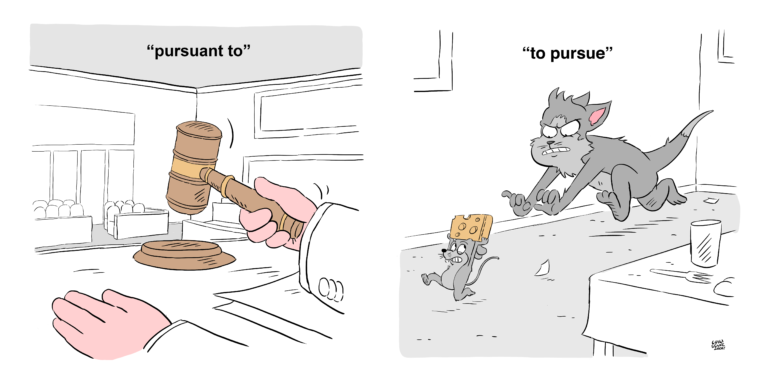
The verb “pursue“, means to follow in order to overtake, capture, kill, or defeat[1].
The expression “pursuant to” is often used in legal writing. For example, “to do something pursuant to a law or a ruling”
Plain English proponents suggest the use of the word “under” as an alternative.
Generally speaking, “under the law” means “subject to the law” or “something assumed to be done under the law”.
“under” is a broad term so it is best to use precise language:
For example, when referring to something issued, done or established under a certain provision of legislation, it is better to state that:
- “something was authorised by …
- “something was issued in accordance with …”
- “something was issued as required by …”
When referring to a factual matter rather than a legislative provision it is better to state that:
- “something was issued on the basis of evidence”.
- “something was issued because of information”.
- “something was issued as a result of evidence”.
[1] https://www.merriam-webster.com/dictionary/pursue


